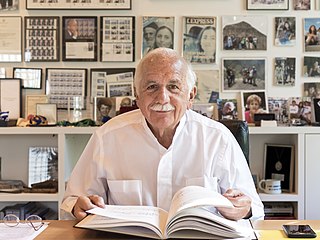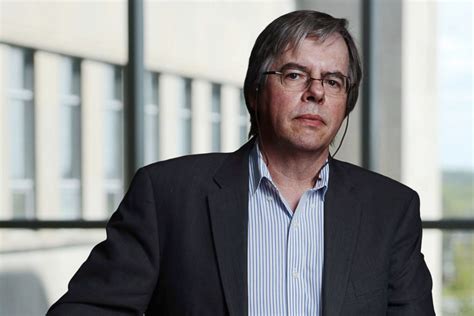A Quote by Robert Hormats
As the world's "most dynamic" cities seek to manage their own urban growth, American state and local officials have much to offer. Our mayors can share their experiences in urban design, clean energy projects, Smart Grids, codes for energy efficient buildings, transportation safety, and innovative environmental solutions.
Related Quotes
I'm working with wind, solar, and biofuels companies as well as with organizations like ACORE [American Council On Renewable Energy], Growth Energy, and AREDAY to raise public awareness and seek practical technological solutions to reduce our reliance on fossilized carbon. My book Don't Wait for the Next War will be out in October, where I will offer my prescription for America's growth, responsible development, and security.
I think as individuals, people overrate the virtues of local food. Most of the energy consumption in our food system is not caused by transportation. Sometimes local food is more energy efficient. But often it's not. The strongest case for locavorism is to eat less that's flown on planes, and not to worry about boats.
I was inspired to see leaders from Paris, New York City, San Francisco and Vancouver, B.C. rolling up their sleeves to create clean and safe transportation systems; make homes and buildings efficient, comfortable and affordable; and ensure more of our energy comes from clean sources like wind and solar.
Building a smarter grid has long been a key part of our government's plan to modernize our energy infrastructure and provide clean, reliable affordable power to consumers. By supporting Ryerson's Centre for Urban Energy we are building a whole new landscape for innovations that will be the backbone for our energy system for future generations.
Permaculture offers a radical approach to food production and urban renewal, water, energy and pollution. It integrates ecology, landscape, organic gardening, architecture and agro-forestry in creating a rich and sustainable way of living. It uses appropriate technology giving high yields for low energy inputs, achieving a resource of great diversity and stability. The design principles are equally applicable to both urban and rural dwellers
Obama wants to build such things as smart electrical grids and high-speed rail lines, which will offer big environmental improvements. Another obvious thing is that large-scale project financing is virtually frozen, so a lot of renewable energy projects are on hold. If the system doesn't get unclogged before the developers run out of cash, they will be cancelled. Money matters, and we are racing against time.
Because we're becoming such an urban nation, we're going to need to be producing so much more food in cities. These institutions have members, obviously. They have the resources to start projects like urban farms and gardens, teaching tools, and the ability to educate their members so that they can then go home and start their own urban gardens. I just really think that faith-based institutions can take the lead in creating community-based food systems, and I'd really like to see that happen.































